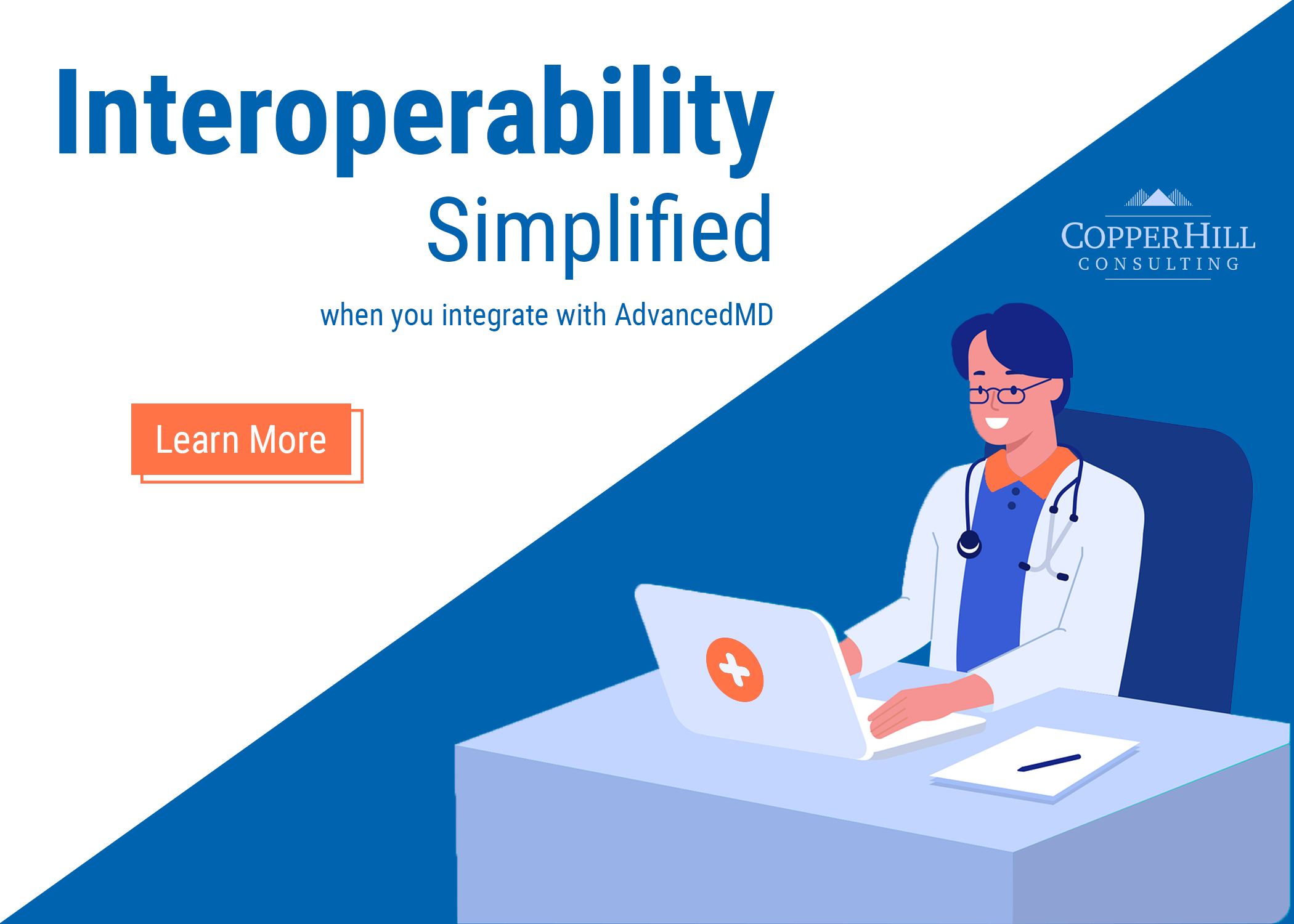Disclaimer: This blog article was written by an AdvancedMD partner. The views and opinions expressed in this article are those of the author(s) and do not necessarily reflect the official policy or position of AdvancedMD.

As technology continues to advance and improve it becomes more and more critical for healthcare organizations to have protected patient data access, standard care tools, and secure ways to cohesively share data. Interoperability does all of these things, and much more for the healthcare industry. The benefits of interoperability are numerous and include:
- Better Care Coordination: The real-time access to patient health information allows providers to avoid miscommunications and provide more accurate patient health information.
- Higher Efficiency: Interoperability allows real-time access to patient data, thus increasing productivity, response time, and overall efficiency. It also eliminates redundant manual tasks, enables insurance verification, and sets systems up for success on automations and workflows while dramatically reducing administrative burdens.
- Better Experience: Data interoperability reduces the amount of time and work needed for both internal and external administrative duties, creating a better experience for both employees and patients. For example, automating a patient intake process to avoid repeat patient paperwork.
Why interoperability matters for all
This is a global initiative to improve healthcare and it affects each of us.
- Companies: In order to achieve a complete 360-degree view of the patient, healthcare organizations must be able to seamlessly connect with and act on data collected by the patients’ care team across multiple providers. This connection leads to more accurate transparency, less time wasted, no data silos, increased productivity, flexibility, and a simplified flow of information.
- Providers: Offer better, more accurate patient data across all systems while also gaining the ability to provide real-time updates to provide the best possible care. Interoperability leads to personalized care, faster diagnosis, shorter wait times and less errors as information moves between systems seamlessly, giving doctors the right information when they need it.
- End Patient / Customer: Patients have easy, secure access to their full medical history. They also reap the benefits of interoperability by avoiding unnecessary questions or re-tests, shorter wait times, less errors, and an all-around more satisfactory patient experience.
Watch our video on interoperability to learn more.
About CopperHill & AIR Connector
CopperHill with AIR Connector helps providers and organizations save time and deliver the best possible care for their patients. CopperHill is a Salesforce Consulting & ISV Partner and AWS Select Tier Partner located outside Philadelphia. CopperHill specializes in a variety of Salesforce.com and AWS products, integration, healthcare, and data solutions. AIR Platform is a full interoperability platform solution with a suite of products that focus on the needs of healthcare and life sciences companies. AIR Connector, the AIR Platform’s integration and middleware tool, simplifies integration with its growing library of standard connectors and accelerators. For more information about CopperHill, please visit https://www.copperhillconsulting.com/ and for more information about AIR Connector, please visit https://www.airplatform.io/air-connector/.

